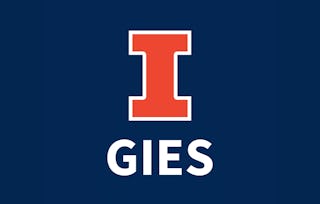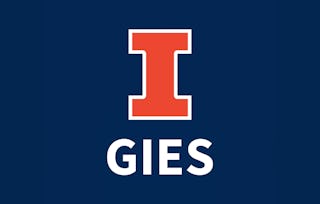Global Marketing: Iconic Brands uses the cultural frameworks introduced in Global marketing: Cultural Frameworks to guide the process of crafting a culturally focused marketing plan for a global expansion. The course introduces the key steps for developing a global marketing plan, starting with an environmental analysis of the new markets to be developed, which provides insights into the cultural preferences of target consumers in these new markets.

Global Marketing: Building Iconic Brands
6 days left! Gain next-level skills with Coursera Plus for $199 (regularly $399). Save now.

Global Marketing: Building Iconic Brands
This course is part of Global Challenges in Business Specialization

Instructor: Carlos J. Torelli
12,986 already enrolled
Included with
(123 reviews)
What you'll learn
Prepare an environmental analysis and size a new market opportunity.
Conduct a brand audit.
Develop a culturally focused marketing plan for a new market entry.
Integrate a new market entry within a global marketing strategy.
Skills you'll gain
Details to know

Add to your LinkedIn profile
21 assignments
See how employees at top companies are mastering in-demand skills

Build your subject-matter expertise
- Learn new concepts from industry experts
- Gain a foundational understanding of a subject or tool
- Develop job-relevant skills with hands-on projects
- Earn a shareable career certificate

There are 5 modules in this course
You will become familiar with the course, your classmates, and our learning environment. The orientation will also help you obtain the technical skills required for the course.
What's included
4 videos4 readings1 discussion prompt
This module defines global marketing and identifies the key activities when attempting a global expansion. With globalization, it is increasingly difficult for companies to cope with the complex challenges discussed in Global Challenges: Cultural Frameworks. This module introduces a framework to analyze the issues involved in a global expansion. The module reviews in detail how to conduct an environmental analysis, the steps to estimate the size of a new market, and the changes in consumer behavior induced by cultural characteristics in a new market.
What's included
6 videos3 readings5 assignments
Once the marketer has fully analyzed the new market, assessed the size of the market, and learned the cultural insights about consumers in the new market, the next step in a global expansion is to assess the extent to which the brand is well suited to appeal to the new target market. This requires a thorough understanding of the brand, its portfolio of products and services, and the distinctive associations that contribute to its equity, and in particular to its cultural equity. This knowledge is gained by conducting a brand audit. This module focuses on brands are knowledge structures represented in consumers’ memory and introduces a framework to describe the different types of brand knowledge, as well as to identify the types of knowledge that are distinctive and relevant, and hence contribute to the equity of the brand. Special attention is paid to the brand’s cultural meanings that elicit distinctive and favorable consumer responses—or to the brand’s cultural equity.
What's included
6 videos3 readings5 assignments
Once a marketer has gained a deep understanding of the focal brand and the cultural nuances of consumers in the new market, the next step is to leverage these insights for developing a culturally focused marketing plan. This module highlights the importance of incorporating culture into marketing decisions by reviewing consumers’ responses to the cultural meanings in brands. The premise that consumers respond more favorably to brands imbued with cultural meanings guides the first step in preparing a culturally focused marketing plan, which is developing a cultural positioning for the brand. Once a cultural positioning has been clearly articulated, the marketer can identify cultural elements to be incorporated into the brand identity. This is typically the first step in developing the marketing tactics of product, promotion, place, and price (or the 4 P’s) to be deployed in the new market.
What's included
8 videos3 readings6 assignments1 peer review
Companies devise marketing tactics to penetrate a new market in the context of what their current marketing strategy is. Although the processes described in past modules partially incorporate the company’s current marketing strategy (i.e., by taking into account the equity of the target brand, an outcome of the overall marketing strategy, or by considering how the brand associations fit into the new market), a company that is already operating in its home market, as well as possibly in other markets, has a portfolio of ongoing marketing tactics. This module discusses the most common approaches to integrate these ongoing tactics with those needed to culturally resonate with consumers in a new market. Specifically, this module reviews the steps that a company should take to integrate actions in different markets under a unified global marketing plan. It focuses on the two competing approaches of standardization of the marketing mix versus cultural adaptation of parts or the entire marketing mix.
What's included
6 videos3 readings5 assignments
Earn a career certificate
Add this credential to your LinkedIn profile, resume, or CV. Share it on social media and in your performance review.
Build toward a degree
This course is part of the following degree program(s) offered by University of Illinois Urbana-Champaign. If you are admitted and enroll, your completed coursework may count toward your degree learning and your progress can transfer with you.¹
Instructor

Offered by
Explore more from Leadership and Management
 Status: Free Trial
Status: Free TrialKennesaw State University
 Status: Free Trial
Status: Free TrialUniversity of Illinois Urbana-Champaign

University of Illinois Urbana-Champaign
 Status: Free Trial
Status: Free TrialUniversity of Illinois Urbana-Champaign
Why people choose Coursera for their career

Felipe M.

Jennifer J.

Larry W.

Chaitanya A.
Learner reviews
- 5 stars
80.48%
- 4 stars
17.88%
- 3 stars
1.62%
- 2 stars
0%
- 1 star
0%
Showing 3 of 123
Reviewed on Sep 14, 2023
very informative course for global executives that are interested in scaling global operations with and ICONIC brand building approach
Reviewed on Mar 21, 2023
Very insightful course. it was an eye opener of what happens in the market space from a global stand point. Many thanks to the tutor!!
Reviewed on Jul 21, 2023
Excellent course on global marketing and building iconic brands.
Frequently asked questions
Once you enroll for a Certificate, you’ll have access to all videos, quizzes, and programming assignments (if applicable). If you choose to explore the course without purchasing, you may not be able to access certain assignments.
You will be eligible for a full refund until 2 weeks after your payment date. You cannot receive a refund once you’ve earned a Course Certificate, even if you complete the course within the 2-week refund period. View our full refund policy.
Yes! Coursera provides financial aid to learners who would like to complete a course but cannot afford the course fee. To apply for aid, select "Learn more and apply" in the Financial Aid section below the "Enroll" button. You'll be prompted to complete a simple application; no other paperwork is required.
More questions
Financial aid available,





